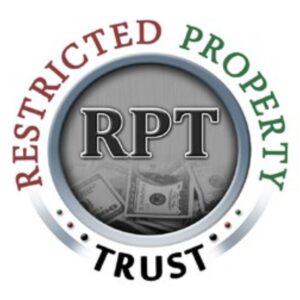Strategic Asset Management: Uncovering the Benefits of Restricted Property Trusts
Strategic Asset Management: Uncovering the Benefits of Restricted Property Trusts
Blog Article

Effective wealth management requires not only growing assets but also safeguarding them from different risk factors. Restricted Property Trusts (RPTs) have emerged as a strategic tool for individuals seeking to understand the complexities of managing wealth while protecting their assets.Restricted Property Trust impact wealth management and why they're becoming a vital element of a complete financial plan.
What are Restricted Property Trusts?
Restricted Property Trusts are specialized financial structures created to hold and manage assets while providing an additional layer of protection against legal claims and creditors. By placing assets into an RPT, investors can make sure that their wealth is protected from potential financial threats, such as divorce proceedings, lawsuits or bankruptcy.
Strategic Benefits of Restricted Property Trusts
1. Increased Protecting Assets: A main benefit of an RPT is the ability it provides protection for assets. By separating the assets from personal holdings, an RPT creates a barrier against legal and monetary claims and helps to protect assets in spite of financial hardships.
2. Tax Efficiency Tax Efficiency: Restricted Property Trusts can also offer tax advantages. Based on the structure and location the assets in an RPT may be eligible for preferential tax treatment. This can be tax deferral or reductions, which improve the effectiveness of wealth management strategies.
3. Afficient Estate Planning RPTs are a vital function in estate planning, helping to control the transfers of wealth. This ensures that wealth distribution is according to the wishes of each individual and minimizes disputes among the heirs and reduces estate taxes. The structure of RPTs permits precise planning and implementation of estate plans.
4. Long-Term Preservation of Wealth: RPTs help in preserving wealth for the next generation. Through imposing strict restrictions on how assets can be used or distributed, RPTs ensure that wealth is managed and maintained in accordance with long-term goals that are in line with generational and legacy planning goals.
Implementing Restricted Property Trusts
Integrating an RPT in your wealth management strategy involves meticulous planning and consulting with legal and financial experts. The process involves drafting an agreement for trust, choosing the trustee, and setting the restrictions and terms which will apply to the trust. This process is customized to ensure that the RPT aligns with your requirements for protection and financial goals.
Considerations and Challenges
While RPTs offer significant advantages but they also come with challenges. Establishing as well as maintaining an RPT can be complex and costly. It is essential to consider the administrative responsibilities, possible legal implications, and specific requirements that your situation in the financial realm. Working with experienced advisors is vital to ensure that the trust is properly designed and is properly managed.
Conclusion
Restricted Property Trust represent a innovative approach to wealth management that provides protection of assets as well as tax efficiency and effective estate planning. Through integrating RPTs into your financial plan, you can deal with the challenges of wealth management with greater confidence and peace of mind. For those seeking to protect and preserve their assets, exploring the benefits from Restricted Property Trusts is a sensible step toward achieving the long-term stability of finances and achieving success.
Report this page